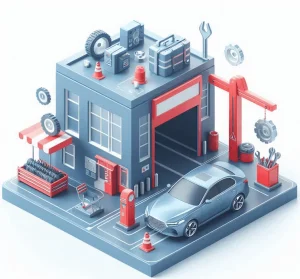Table of Contents
Porsche Oil Changes Owning a Porsche is not merely about possessing a vehicle; it’s about embracing a legacy of engineering excellence, precision, and performance. Whether you’re cruising down the freeway or navigating through winding roads, the engine is the beating heart of your Porsche. To keep this heart healthy and robust, regular Porsche Oil Changes are imperative. Let’s delve into why these routine maintenance tasks are so crucial and how they contribute to the longevity and efficiency of your prized possession.

The Vital Role of Engine Oil
Engine oil is often referred to as the lifeblood of your car. Porsche Oil Changes It performs several essential functions that keep the engine running smoothly. These include lubrication, cooling, cleaning, and protection. Each of these functions is vital to ensure your Porsche runs at its optimum performance level.
Lubrication
The engine comprises numerous moving parts, each of which needs to move smoothly against each other to avoid friction. Engine oil provides a slick film between these parts, significantly reducing friction and preventing wear and tear. Without regular Porsche Oil Changes, this lubrication can degrade, leading to increased friction and potentially severe engine damage.
Cooling
While the primary cooling system in your Porsche involves coolant and a radiator, engine oil also plays a crucial role in dissipating heat. As oil circulates through the engine, Porsche Oil Changes it absorbs heat from the moving parts, helping to keep the overall temperature of the engine in check. Old or degraded oil loses its ability to effectively absorb and dissipate heat, which can lead to overheating and subsequent engine failure.
Cleaning
Over time, dirt, debris, and combustion by-products can accumulate within the engine. Engine oil helps to clean these contaminants by suspending them within the oil until they can be trapped by the oil filter. Regular Porsche Oil Changes ensure that the engine oil remains clean and effective at removing these harmful particles, thereby maintaining a clean engine environment.
Protection
Engine oil also provides a protective barrier against rust and corrosion. The metal components within the engine are prone to oxidation, especially when exposed to the heat and by-products of combustion. Fresh engine oil contains additives that help to prevent this oxidation, protecting your engine from rust and corrosion.
The Specific Needs of a Porsche Engine
Porsche engines are masterpieces of automotive engineering, designed to deliver exceptional performance and reliability. However, this high level of performance demands meticulous maintenance. Porsche Oil Changes are tailored to meet the specific needs of these high-performance engines.
High-Performance Expectations
Porsches are engineered to deliver high horsepower and torque, often under strenuous conditions. Porsche Oil Changes this performance generates significant heat and stress within the engine, necessitating the use of high-quality engine oil that can withstand these conditions. Regular oil changes ensure that your engine is always equipped with oil that can handle the demands placed upon it.
Precision Engineering
The precision engineering of a Porsche engine means that even minor issues can have significant consequences. Regular Porsche Oil Changes ensure that the engine oil is always in optimal condition, minimizing the risk of engine wear and maintaining the precise tolerances and performance standards that Porsche engines are known for.
Specialized Oil Formulations
Porsche recommends specific oil formulations that are designed to work best with their engines. These oils often contain specialized additives that enhance performance and protection. By adhering to the recommended oil change schedule, you ensure that your engine is always running with the best possible oil, which is crucial for maintaining performance and longevity.
Consequences of Neglecting Oil Changes
Neglecting regular Porsche Oil Changes can lead to a host of problems, many of which can be costly and time-consuming to fix. Understanding these consequences underscores the importance of staying on top of your oil change schedule.
Increased Engine Wear
Without regular oil changes, the oil in your engine can become dirty and lose its lubricating properties. This increases friction between the moving parts, leading to accelerated wear and tear. Over time, this can result in significant engine damage that may require extensive repairs or even a complete engine rebuild.
Overheating
Degraded oil loses its ability to effectively cool the engine. This can lead to overheating, which can cause serious damage to engine components. Overheating can warp engine parts, damage the head gasket, and even lead to catastrophic engine failure.
Poor Performance
Dirty or degraded oil can affect the overall performance of your Porsche. You might notice a decrease in power, sluggish acceleration, or reduced fuel efficiency. Regular Porsche Oil Changes help to ensure that your engine is always operating at peak performance.
Engine Sludge
Over time, old oil can break down and form a thick, tar-like substance known as engine sludge. This sludge can clog oil passages, restrict oil flow, and significantly reduce the effectiveness of the oil. Engine sludge can lead to a range of problems, from minor performance issues to major engine damage.
Voiding the Warranty
For newer Porsches, neglecting regular oil changes can void your warranty. Porsche, like most manufacturers, requires proof of regular maintenance to honor warranty claims. Failing to keep up with Porsche Oil Changes can leave you without coverage if something goes wrong with your engine.
Benefits of Regular Porsche Oil Changes
On the flip side, adhering to a regular oil change schedule offers numerous benefits that go beyond just avoiding problems. These benefits enhance your driving experience and protect your investment in the long run.
Optimal Engine Performance
Regular Porsche Oil Changes ensure that your engine always has fresh, clean oil, which helps it run smoothly and efficiently. You’ll enjoy optimal performance, with your engine delivering the power and responsiveness that you expect from a Porsche.
Extended Engine Life
By keeping your engine well-lubricated and clean, regular oil changes help to reduce wear and tear, extend the life of your engine, and protect against potential damage. This means you can enjoy your Porsche for many more miles and years.
Improved Fuel Efficiency
Clean engine oil reduces friction and allows your engine to run more efficiently. This can lead to improved fuel efficiency, saving you money on fuel and reducing your environmental footprint.
Reduced Emissions
Old, dirty oil can contribute to increased emissions as the engine burns oil along with fuel. Fresh oil helps your engine run more cleanly, reducing harmful emissions and helping you do your part for the environment.
Peace of Mind
There’s a certain peace of mind that comes with knowing your Porsche is well-maintained. Regular Porsche Oil Changes are a key part of that maintenance, ensuring that your engine is protected and performing at its best. This peace of mind allows you to enjoy your Porsche to the fullest, without worrying about potential engine problems.
The Process of a Porsche Oil Change
Understanding the process of a Porsche Oil Change can help you appreciate the meticulous care that goes into maintaining your vehicle. Here’s what typically happens during an oil change at a Porsche service center.
Draining the Old Oil
The first step is to drain the old oil from the engine. This involves removing the oil drain plug and allowing the oil to flow out into a collection pan. The technician will also remove the old oil filter at this stage.
Inspecting and Cleaning
Once the old oil has been drained, the technician will inspect the oil and filter for any signs of contamination or abnormal wear. This can provide valuable insights into the condition of your engine. The oil drain plug and surrounding area are also cleaned to ensure there are no residual contaminants.
Replacing the Oil Filter
A new oil filter is essential to trap dirt and debris, keeping the new oil clean as it circulates through the engine. The technician will install a new Porsche-approved oil filter, ensuring it is properly seated and secure.
Adding Fresh Oil
With the new filter in place, the technician will add fresh, Porsche-recommended oil to the engine. The amount and type of oil will be specific to your Porsche model, ensuring optimal performance and protection.
Checking for Leaks
After adding the new oil, the technician will start the engine and let it run for a few minutes. This allows the new oil to circulate and gives the technician an opportunity to check for any leaks. They will also check the oil level and top it off if necessary.
Final Inspection
The final step is a thorough inspection of the engine and surrounding components. The technician will check for any signs of leaks, wear, or other issues that may need attention. Once everything is confirmed to be in good order, the oil change is complete, and your Porsche is ready to hit the road.
When to Schedule Your Porsche Oil Change
Knowing when to schedule your Porsche Oil Changes is crucial for maintaining engine health. While the exact interval can vary depending on your specific model and driving conditions, here are some general guidelines.
Manufacturer Recommendations
Porsche provides specific recommendations for oil change intervals in the owner’s manual. These recommendations are based on extensive testing and are designed to ensure optimal engine performance and longevity. For most modern Porsches, the recommended interval is typically every 10,000 miles or once a year, whichever comes first.
Driving Conditions
If you frequently drive in severe conditions—such as very hot or cold weather, heavy traffic, or on dusty roads—you may need to change your oil more frequently. These conditions can accelerate the degradation of the oil, necessitating more frequent changes to maintain engine health.
Monitoring Oil Levels and Quality
Regularly checking your oil level and quality can help you determine when an oil change is needed. If the oil appears dirty or if the level is consistently low, it’s a good indication that it’s time for a change. Modern Porsches are equipped with sensors and onboard diagnostics that can alert you when it’s time for an oil change, making it easier to stay on top of maintenance.
Porsche Oil Changes
Regular Porsche Oil Changes are not just a routine maintenance task; they are a critical component of keeping your Porsche’s engine running smoothly and efficiently. By ensuring proper lubrication, cooling, cleaning, and protection, oil changes help to maintain the high performance and reliability that Porsche is known for. Neglecting this essential maintenance can lead to severe engine problems, while adhering to a regular oil change schedule offers numerous benefits, including optimal performance, extended engine life, improved fuel efficiency, and peace of mind.
Treat your Porsche to the care it deserves with regular oil changes, and you’ll be rewarded with a driving experience that is both exhilarating and enduring. After all, a well-maintained Porsche is more than just a car; it’s a testament to engineering excellence and a joy to drive.






More Stories
Powerful Secrets Every Cars Mechanic Knows for a Smoother, Happier Drive
Transform Your Ride: Discover the Joy of Automotive Refinishing Mastery
Celebrate Automotive Beauty: Proven Auto Restoration Parts for Brilliant Results